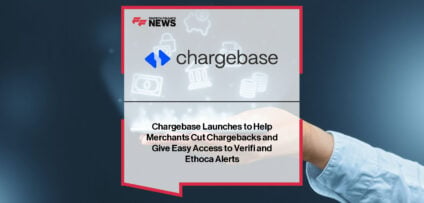Breaking News

EXCLUSIVE: “The SOS Investment Playbook” – Tarun Gupta, Jump Capital in ‘The Fintech Magazine’
US VC Jump Capital specifically looks for startups that help bankers solve existential threats such as off-channel communication, friendly fraud and push payment fraud. Partner Tarun Gupta explains why
When US national security adviser Michael Waltz accidentally added the editor of The Atlantic to a group chat about air attacks on Houthi targets, it revealed that the problem of chat apps being used for official business goes right to the very top.
Though US President Donald Trump repeatedly brushed aside concerns that using Signal for such highly sensitive conversations compromised security, the use of such unofficial channels for business has long been a headache for the financial industry. It’s just the sort of ‘hair on fire’ issue that Jump Capital Partner Tarun Gupta gets excited about: a potentially existential threat that can be turned into an investment opportunity.
Jump Capital is a Chicago-based venture firm which backs early-stage founders, solving problems in fintech, application software, and infrastructure software. Gupta leads fintech investments from its New York office, looking for businesses that can tackle acute issues fast, with a clear and measurable return on investment. And right now there are three areas where he’s seeking innovative candidates to join Jump’s portfolio, including the sensitive issue of so-called off-channel communication (although channels are precisely the problem!).
Careless words
Bankers talking with each other through the likes of WhatsApp and Facebook Messenger is, for Gupta, one hangover of the COVID pandemic, when internal risk and compliance procedures were compromised by a culture of ‘growth by any means necessary’. And he believes now is an opportune time for investing in technology in this area, since weaknesses are being identified and aggressively tackled by regulators, creating opportunities to ‘move compliance from a cost centre to a potential revenue driver’ by differentiating providers from their rivals.
“With strong procedures and internal compliance rigour it can be a way for them to win business,” he says.
Working from home, enforced by COVID lockdowns, fuelled a rise in communication through informal channels, despite the financial industry’s regulations around record-keeping and confidential information protection. In November 2024, the UK’s NatWest bank decided to block messaging services WhatsApp, Facebook Messenger and Skype on its company devices to stop employees using them to communicate with one another.
Fines for rule breaches has run into billions of dollars in the US. And although Nikhil Rathi, Chief Executive of the UK’s Financial Conduct Authority, said in January it would not introduce rules on bankers using encrypted apps for unauthorised business communications, Rathi added that the regulator was ‘working with firms on a case-by-case basis to understand how they are monitoring these activities’.
Gupta believes that, in the US at least, the imposition of fines by the Security and Exchange Commission for careless use of off-channel communications will only accelerate.
“Banks will try to crack down on employee usage of WhatsApp and other text channels, but I think it’s unrealistic to believe you’re going to stop people from communicating in the way that they want,” he says. “So we think there’s an opportunity for new compliance tooling to flourish, by doing a better job of capturing all the different lines of communication someone might be interacting with.
“But the real north star would be to get in front and pre-empt problems. If you get to a point where you have full connectivity, full monitoring and oversight, a system could flag up a potential problem with what an employee is typing and suggest compliant language instead.
“Such a solution could be a way off, but it’s a vision of how you could build a really interesting product.”
Gupta doesn’t underestimate the challenge of compliantly recording and archiving communication across multiple channels to allow later retrieval for regulators. And he highlights businesses Global Relay and Smarsh as existing players that have done a ‘really great job’ of doing that. But he adds there’s an opportunity for new entrants to do a better one, especially when it comes to the newer communication platforms.
“There are a handful of early-stage players in the ecosystem that we’re tracking,” he says. “Right now, searchability is pretty broken. There are lots of false positives that get surfaced to compliance teams, based on specific keywords that aren’t actually problematic conversations. So, with improvements, there’s a really interesting business to be built.”
Faking it
Chargeback fraud is another problem draining billions of pounds from businesses – and one that is so commonplace it is viewed by many perpetrators as a victimless crime.
Merchants have estimated that almost half of chargebacks to banks and credit providers are just such ‘friendly fraud’ – that is, they are made by the purchaser using their own identity. Reasons can include genuine consumer mistakes that result in them seeking a chargeback because they’ve forgotten they made a purchase or don’t recognise the merchant’s name on their account statement.
But others are due to buyer’s remorse or intentional abuse in order to get a product for free. Last year, Mastercard and Worldpay predicted chargeback volumes would hit 337 million cases by next year, a rise of 42 per cent since 2023, while Sift Research said Americans disputed $65million of credit card charges in 2023.
“On chargeback disputes, the volumes are crazy, the numbers are just absolutely massive,” says Gupta. “Gen Z consumers, in particular, are pretty comfortable with disputing charges with their banks, regardless of whether the dispute is real or not.
“Banks will try to crack down on employee usage of text channels, but it’s unrealistic to believe you’re going to stop people from communicating in the way they want”
“Several really solid businesses have been built around solving chargeback disputes, specifically for merchants, but we think there’s an opportunity on the issuing bank side. Issuing banks are a little behind the eight ball on streamlined automated solutions to determine which disputes are worth pushing back on.”
Pushing the envelope
Friendly fraud isn’t the only issue draining banks’ energy and coffers. According to the industry group UK Finance, authorised push payment (APP) fraud hit £460million in 2023 and accounted for 40 per cent of all fraud losses.
APP covers frauds whereby a consumer or business is duped into forwarding money to a criminal, increasingly using instant payments. In October, the UK’s Payment Systems Regulator introduced a scheme protecting people moving money from one bank account to another via Faster Payments or CHAPS with ‘most APP fraud victims being reimbursed within five business days and additional protections for vulnerable customers’.
Gupta believes similar legislation will follow in the US, which is also suffering an explosion in APP abuse. ACI Worldwide predicts losses will amount to $3billion by 2028.
He says: “There’s less of a push for banks to adopt something when consumers are holding the bag [for APP losses]. If you introduce regulation so banks are the ones on the hook, then software adoption and the desire to bring in solutions to get in front of that fraud dramatically accelerates.
“Banks and payment apps will need to get better at identifying potentially fraudulent activity to stop consumers making payments. They need to leverage prior transaction behaviour to identify problems.”
Find the ideal founders
Launched 13 years ago, Jump Capital is now investing out of its seventh fund, a $350million vehicle with a particular focus on crypto that closed in late 2021. Its fintech vertical currently features 24 businesses, with solutions covering digital currencies, blockchain, financial services compliance, investment platforms, cross-border payments, cash management, sports betting and car loans. So who’s catching its eye?
“One thing we look for is unique founder insight,” says Gupta. “Either they have a unique angle to solve a problem, or they are so well-read and up to speed that you know they live and breathe their particular interest – it’s not a side project or hobby, it really is core to their being.
“There are a lot of problems that exist across the ecosystem for B2B software to solve, but if folks are going to spend time and money on it, it has to be solving an existential threat to their business. So, we also ask, have founders identified that and built a solution that can solve it in a measurable way, not in 12 months, but in three or six months?
“When we see the confluence of all of those things, we get really, really excited.”
This article was published in The Fintech Magazine Issue #35 Page 42-43
People In This Post
Companies In This Post
- Lüt Announces Strategic Partnership with Safe Harbor to Expand Access to Compliant Closed-Loop Payments for Cannabis and Specialty Merchants Read more
- Figure Partners with moomoo and Keplr to Expand Global Access to the On-chain Public Equity Network (OPEN) Read more
- OneDome Raises $25M Pre-Series C, Bringing Total Funding to $40M Read more
- intelliflo and Söderberg & Partners Form Strategic Partnership to Drive Adviser Efficiency Read more
- Axiology Secures €5 Million Seed Funding to Accelerate the Modernisation of Europe’s Capital Markets Read more


















